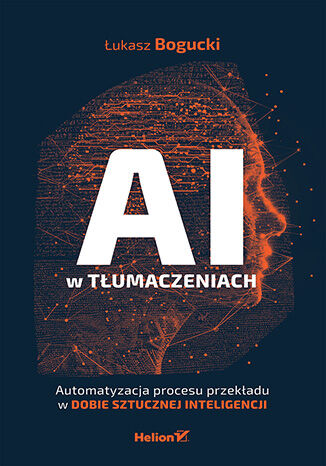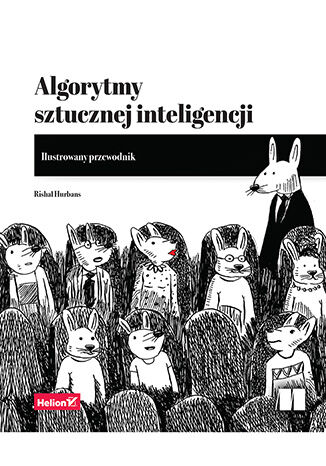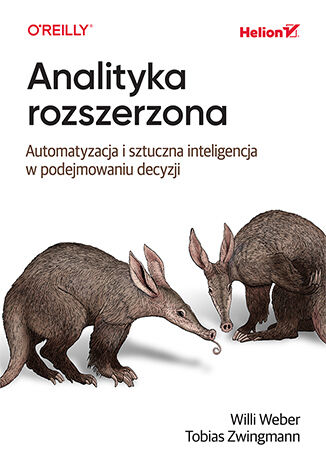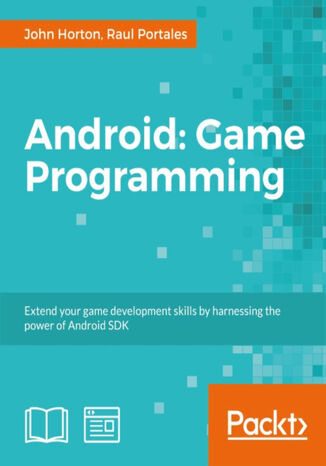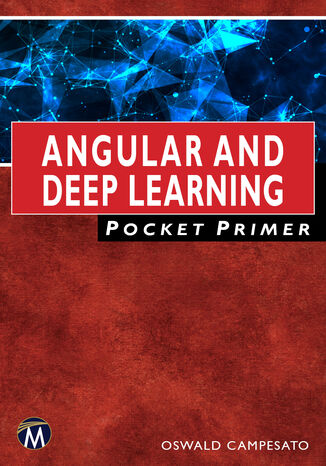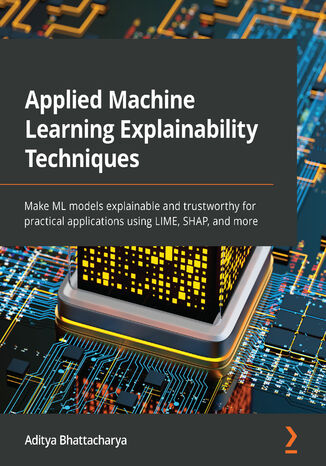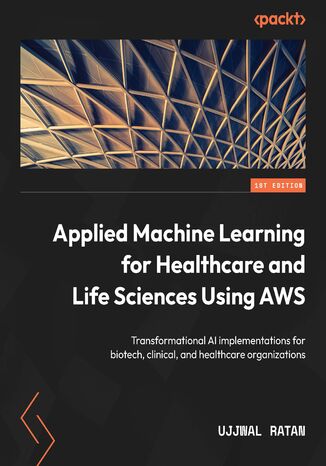Kategorie
Ebooki
-
Biznes i ekonomia
- Bitcoin
- Bizneswoman
- Coaching
- Controlling
- E-biznes
- Ekonomia
- Finanse
- Giełda i inwestycje
- Kompetencje osobiste
- Komputer w biurze
- Komunikacja i negocjacje
- Mała firma
- Marketing
- Motywacja
- Multimedialne szkolenia
- Nieruchomości
- Perswazja i NLP
- Podatki
- Polityka społeczna
- Poradniki
- Prezentacje
- Przywództwo
- Public Relation
- Raporty, analizy
- Sekret
- Social Media
- Sprzedaż
- Start-up
- Twoja kariera
- Zarządzanie
- Zarządzanie projektami
- Zasoby ludzkie (HR)
-
Dla dzieci
-
Dla młodzieży
-
Edukacja
-
Encyklopedie, słowniki
-
E-prasa
- Architektura i wnętrza
- BHP
- Biznes i Ekonomia
- Dom i ogród
- E-Biznes
- Ekonomia i finanse
- Ezoteryka
- Finanse
- Finanse osobiste
- Firma
- Fotografia
- Informatyka
- Kadry i płace
- Kobieca
- Komputery, Excel
- Księgowość
- Kultura i literatura
- Naukowe i akademickie
- Ochrona środowiska
- Opiniotwórcze
- Oświata
- Podatki
- Podróże
- Psychologia
- Religia
- Rolnictwo
- Rynek książki i prasy
- Transport i Spedycja
- Zdrowie i uroda
-
Historia
-
Informatyka
- Aplikacje biurowe
- Bazy danych
- Bioinformatyka
- Biznes IT
- CAD/CAM
- Digital Lifestyle
- DTP
- Elektronika
- Fotografia cyfrowa
- Grafika komputerowa
- Gry
- Hacking
- Hardware
- IT w ekonomii
- Pakiety naukowe
- Podręczniki szkolne
- Podstawy komputera
- Programowanie
- Programowanie mobilne
- Serwery internetowe
- Sieci komputerowe
- Start-up
- Systemy operacyjne
- Sztuczna inteligencja
- Technologia dla dzieci
- Webmasterstwo
-
Inne
-
Języki obce
-
Kultura i sztuka
-
Lektury szkolne
-
Literatura
- Antologie
- Ballada
- Biografie i autobiografie
- Dla dorosłych
- Dramat
- Dzienniki, pamiętniki, listy
- Epos, epopeja
- Esej
- Fantastyka i science-fiction
- Felietony
- Fikcja
- Humor, satyra
- Inne
- Klasyczna
- Kryminał
- Literatura faktu
- Literatura piękna
- Mity i legendy
- Nobliści
- Nowele
- Obyczajowa
- Okultyzm i magia
- Opowiadania
- Pamiętniki
- Podróże
- Poemat
- Poezja
- Polityka
- Popularnonaukowa
- Powieść
- Powieść historyczna
- Proza
- Przygodowa
- Publicystyka
- Reportaż
- Romans i literatura obyczajowa
- Sensacja
- Thriller, Horror
- Wywiady i wspomnienia
-
Nauki przyrodnicze
-
Nauki społeczne
-
Podręczniki szkolne
-
Popularnonaukowe i akademickie
- Archeologia
- Bibliotekoznawstwo
- Filmoznawstwo
- Filologia
- Filologia polska
- Filozofia
- Finanse i bankowość
- Geografia
- Gospodarka
- Handel. Gospodarka światowa
- Historia i archeologia
- Historia sztuki i architektury
- Kulturoznawstwo
- Lingwistyka
- Literaturoznawstwo
- Logistyka
- Matematyka
- Medycyna
- Nauki humanistyczne
- Pedagogika
- Pomoce naukowe
- Popularnonaukowa
- Pozostałe
- Psychologia
- Socjologia
- Teatrologia
- Teologia
- Teorie i nauki ekonomiczne
- Transport i spedycja
- Wychowanie fizyczne
- Zarządzanie i marketing
-
Poradniki
-
Poradniki do gier
-
Poradniki zawodowe i specjalistyczne
-
Prawo
- BHP
- Historia
- Kodeks drogowy. Prawo jazdy
- Nauki prawne
- Ochrona zdrowia
- Ogólne, kompendium wiedzy
- Podręczniki akademickie
- Pozostałe
- Prawo budowlane i lokalowe
- Prawo cywilne
- Prawo finansowe
- Prawo gospodarcze
- Prawo gospodarcze i handlowe
- Prawo karne
- Prawo karne. Przestępstwa karne. Kryminologia
- Prawo międzynarodowe
- Prawo międzynarodowe i zagraniczne
- Prawo ochrony zdrowia
- Prawo oświatowe
- Prawo podatkowe
- Prawo pracy i ubezpieczeń społecznych
- Prawo publiczne, konstytucyjne i administracyjne
- Prawo rodzinne i opiekuńcze
- Prawo rolne
- Prawo socjalne, prawo pracy
- Prawo Unii Europejskiej
- Przemysł
- Rolne i ochrona środowiska
- Słowniki i encyklopedie
- Zamówienia publiczne
- Zarządzanie
-
Przewodniki i podróże
- Afryka
- Albumy
- Ameryka Południowa
- Ameryka Środkowa i Północna
- Australia, Nowa Zelandia, Oceania
- Austria
- Azja
- Bałkany
- Bliski Wschód
- Bułgaria
- Chiny
- Chorwacja
- Czechy
- Dania
- Egipt
- Estonia
- Europa
- Francja
- Góry
- Grecja
- Hiszpania
- Holandia
- Islandia
- Litwa
- Łotwa
- Mapy, Plany miast, Atlasy
- Miniprzewodniki
- Niemcy
- Norwegia
- Podróże aktywne
- Polska
- Portugalia
- Pozostałe
- Przewodniki po hotelach i restauracjach
- Rosja
- Rumunia
- Słowacja
- Słowenia
- Szwajcaria
- Szwecja
- Świat
- Turcja
- Ukraina
- Węgry
- Wielka Brytania
- Włochy
-
Psychologia
- Filozofie życiowe
- Kompetencje psychospołeczne
- Komunikacja międzyludzka
- Mindfulness
- Ogólne
- Perswazja i NLP
- Psychologia akademicka
- Psychologia duszy i umysłu
- Psychologia pracy
- Relacje i związki
- Rodzicielstwo i psychologia dziecka
- Rozwiązywanie problemów
- Rozwój intelektualny
- Sekret
- Seksualność
- Uwodzenie
- Wygląd i wizerunek
- Życiowe filozofie
-
Religia
-
Sport, fitness, diety
-
Technika i mechanika
Audiobooki
-
Biznes i ekonomia
- Bitcoin
- Bizneswoman
- Coaching
- Controlling
- E-biznes
- Ekonomia
- Finanse
- Giełda i inwestycje
- Kompetencje osobiste
- Komunikacja i negocjacje
- Mała firma
- Marketing
- Motywacja
- Nieruchomości
- Perswazja i NLP
- Podatki
- Polityka społeczna
- Poradniki
- Prezentacje
- Przywództwo
- Public Relation
- Sekret
- Social Media
- Sprzedaż
- Start-up
- Twoja kariera
- Zarządzanie
- Zarządzanie projektami
- Zasoby ludzkie (HR)
-
Dla dzieci
-
Dla młodzieży
-
Edukacja
-
Encyklopedie, słowniki
-
E-prasa
-
Historia
-
Informatyka
-
Inne
-
Języki obce
-
Kultura i sztuka
-
Lektury szkolne
-
Literatura
- Antologie
- Ballada
- Biografie i autobiografie
- Dla dorosłych
- Dramat
- Dzienniki, pamiętniki, listy
- Epos, epopeja
- Esej
- Fantastyka i science-fiction
- Felietony
- Fikcja
- Humor, satyra
- Inne
- Klasyczna
- Kryminał
- Literatura faktu
- Literatura piękna
- Mity i legendy
- Nobliści
- Nowele
- Obyczajowa
- Okultyzm i magia
- Opowiadania
- Pamiętniki
- Podróże
- Poezja
- Polityka
- Popularnonaukowa
- Powieść
- Powieść historyczna
- Proza
- Przygodowa
- Publicystyka
- Reportaż
- Romans i literatura obyczajowa
- Sensacja
- Thriller, Horror
- Wywiady i wspomnienia
-
Nauki przyrodnicze
-
Nauki społeczne
-
Popularnonaukowe i akademickie
-
Poradniki
-
Poradniki zawodowe i specjalistyczne
-
Prawo
-
Przewodniki i podróże
-
Psychologia
- Filozofie życiowe
- Komunikacja międzyludzka
- Mindfulness
- Ogólne
- Perswazja i NLP
- Psychologia akademicka
- Psychologia duszy i umysłu
- Psychologia pracy
- Relacje i związki
- Rodzicielstwo i psychologia dziecka
- Rozwiązywanie problemów
- Rozwój intelektualny
- Sekret
- Seksualność
- Uwodzenie
- Wygląd i wizerunek
- Życiowe filozofie
-
Religia
-
Sport, fitness, diety
-
Technika i mechanika
Kursy video
-
Bazy danych
-
Big Data
-
Biznes, ekonomia i marketing
-
Cyberbezpieczeństwo
-
Data Science
-
DevOps
-
Dla dzieci
-
Elektronika
-
Grafika/Wideo/CAX
-
Gry
-
Microsoft Office
-
Narzędzia programistyczne
-
Programowanie
-
Rozwój osobisty
-
Sieci komputerowe
-
Systemy operacyjne
-
Testowanie oprogramowania
-
Urządzenia mobilne
-
UX/UI
-
Web development
-
Zarządzanie
Podcasty
- Ebooki
- Informatyka
- Sztuczna inteligencja
Sztuczna inteligencja
AI w tłumaczeniach. Automatyzacja procesu przekładu w dobie sztucznej inteligencji
Tłumaczenia technologicznie doładowane Branża tłumaczeniowa przeżywa w ostatnich kilku latach prawdziwą rewolucję. Jest ona związana z rozwojem technologii tłumaczeń wspomaganych komputerowo (CAT) i sztucznej inteligencji (AI). I choć wielu tłumaczy zerka z obawą szczególnie w stronę tej drugiej, obawiając się, że AI odbierze im pracę, znacznie lepiej (i efektywniej) jest potraktować oba narzędzia właśnie jako narzędzia - ułatwiające i usprawniające proces tłumaczenia tekstu. Jeśli chcesz się dowiedzieć, jak te dwie technologie mogą wspomóc lub zmienić Twoją pracę, sięgnij po tę książkę. Dowiesz się, na czym faktycznie polega rola tłumacza w pracy nad przekładem Poznasz historyczne początki tłumaczeń wspomaganych technologiami cyfrowymi Zrozumiesz zasadę działania narzędzi mogących przyspieszyć i usprawnić Twoją pracę Zastanowisz się nad tym, jaka przyszłość czeka branżę, którą właśnie opanowuje generatywna sztuczna inteligencja
AI. Наддержави штучного інтелекту
Кай Фу Лі
Чесно про те, кому загрожує втрата роботи через штучний інтелект та які економічні наслідки тягнуть за собою технологічні прориви. Що буде з людиною, коли штучний інтелект робитиме геть усе? Штучний інтелект змінює світ. Чи буде суперкомпютер правити світом? Що ми можемо зробити для того, щоб не лишитися позаду прогресу?
Algorytmy sztucznej inteligencji. Ilustrowany przewodnik
Sztuczna inteligencja ma umożliwiać wykorzystywanie danych i algorytmów do podejmowania lepszych decyzji, rozwiązywania trudnych problemów i automatyzowania złożonych zadań. Ma też zwiększać produktywność człowieka. Obecnie sztuczna inteligencja z rozmachem wkracza do kolejnych dziedzin. Budzi zachwyt, ale też kontrowersje i obawy. Nowe narzędzia, choćby były tworzone z najlepszymi intencjami, zawsze mogą zostać wykorzystane w niewłaściwy czy szkodliwy sposób. Oznacza to, że każdy, kto rozwija nowe technologie, powinien to robić odpowiedzialnie. Aby to było możliwe, trzeba dobrze zrozumieć podstawy działania sztucznej inteligencji - algorytmy. To praktyczny przewodnik po algorytmach sztucznej inteligencji. Skorzystają z niego programiści i inżynierowie, którzy chcą zrozumieć zagadnienia i algorytmy związane ze sztuczną inteligencją na podstawie praktycznych przykładów i wizualnych wyjaśnień. Książka pokazuje, jak radzić sobie z takimi zadaniami programistycznymi jak wykrywanie oszustw bankowych czy sterowanie pojazdem autonomicznym. Pierwsze rozdziały dotyczą podstawowych koncepcji i algorytmów i stają się punktem wyjścia do bardziej złożonych tematów: wydajnych algorytmów przeszukiwania oraz poszukiwania rozwiązań w środowisku konkurencyjnym. Przedstawiono tu zagadnienia uczenia maszynowego, w tym proces przygotowania danych, modelowania i testowania. Omówiono też zasady uczenia przez wzmacnianie za pomocą algorytmu Q-learning. W książce: kategorie i znaczenie algorytmów sztucznej inteligencji. inteligentne przeszukiwanie w procesie podejmowania decyzji algorytmy genetyczne i inteligencja rozproszona uczenie maszynowe i sieci neuronowe uczenie przez wzmacnianie Zrozum algorytmy, a pojmiesz istotę sztucznej inteligencji!
Analityka rozszerzona. Automatyzacja i sztuczna inteligencja w podejmowaniu decyzji
Niepowodzenia biznesowe można różnie tłumaczyć, jeśli jednak od szukania wymówek wolisz zapewnić sukces swojej firmie, przemyśl sposób, w jaki korzystasz z analizy danych. Poprzez rozszerzenie możliwości i poprawę jakości analiz otworzysz sobie drzwi do podejmowania najbardziej racjonalnych decyzji - decyzji opartych na wnioskach. W tej książce znajdziesz przejrzystą, praktyczną i kompletną ścieżkę, która doprowadzi Twoją firmę do analitycznej doskonałości! Dzięki lekturze zdobędziesz wiedzę potrzebną do skutecznego wykorzystywania informacji w realizacji celów biznesowych. Jeśli dostrzegasz ograniczenia tradycyjnych metod interpretacji danych, docenisz opisaną tu dynamiczną i realistyczną strategię zwiększania możliwości analitycznych. Dowiesz się, jak wprowadzić inteligentną automatyzację i nowoczesną sztuczną inteligencję, co umożliwi podejmowanie lepszych decyzji w Twoim zespole. Najważniejsze zagadnienia: rozszerzona analityka, jej zalety i potencjalne ograniczenia najlepsze praktyki w dziedzinie implementacji rozszerzonej analityki w firmie role analityczne, przepływy pracy, potrzebne narzędzia i umiejętności korzystanie z danych, a także budowanie zaufania i dostępności analiza przypadków posłużenia się rozszerzoną analityką jako czynnikiem wspierającym Oto drogowskaz dla organizacji, która chce bazować na danych w erze sztucznej inteligencji! Donald Farmer, właściciel firmy TreeHive Strategy
Android: Game Programming. A Developer's Guide
Gaming has historically been a strong driver of technology, whether we’re talking about hardware or software performance, the variety of input methods, or graphics support and the Android game platform is no different. Android is a mature, yet still growing, platform that many game developers have embraced as it provides tools, APIs, and services to help bootstrap Android projects and ensure their success, many of which are specially designed to help game developers.Since Android uses one of the most popular programming languages, Java, as the primary language to build apps of all types, you will start this course by first obtaining a solid grasp of the Java language and its foundation APIs. This will improve your chances of succeeding as an Android app developer. We will show you how to get your Android development environment set up and you will soon have your first working game.The course covers all the aspects of game development through various engrossing and insightful game projects. You will learn all about frame-by-frame animations and resource animations using a space shooter game, create beautiful and responsive menus and dialogs, and explore the different options to play sound effects and music in Android. You will also learn the basics of creating a particle system and will see how to use the Leonids library. By the end of the course, you will be able to configure and use Google Play Services on the developer console and port your game to the big screen.This Learning Path combines some of the best that Packt has to offer in one complete, curated package. It includes content from the following Packt products:? Learning Java by Building Android Games by John Horton? Android Game Programming by Example by John Horton? Mastering Android Game Development by Raul Portales
Mercury Learning and Information, Oswald Campesato
As part of the Pocket Primer series, this book introduces basic deep learning concepts and integrates them into Angular 10 applications. It offers a fast-paced introduction to deep learning features and popular classifiers. Covering Angular 10 functionality, deep learning concepts, and key classification algorithms, the book includes code samples and figures. Topics such as TensorFlow and Keras are also explored.The book begins with an introduction to AI and its applications, followed by state space search and heuristic search strategies. You will delve into expert systems, their development life cycle, knowledge acquisition, and representation. These topics lead to a deeper understanding of neural networks, the learning process, and fuzzy logic systems, ensuring a comprehensive grasp of AI and deep learning principles.Understanding these concepts is essential for developing sophisticated AI applications and enhancing Angular 10 projects. This book transitions you from a novice to a proficient developer, equipped with practical skills and knowledge. Advanced topics like fuzzy expert systems and logic programming are covered, culminating in advanced Prolog. Companion files with source code and color figures enhance the learning experience, making this book an invaluable resource for integrating deep learning with Angular 10.
Explainable AI (XAI) is an emerging field that brings artificial intelligence (AI) closer to non-technical end users. XAI makes machine learning (ML) models transparent and trustworthy along with promoting AI adoption for industrial and research use cases.Applied Machine Learning Explainability Techniques comes with a unique blend of industrial and academic research perspectives to help you acquire practical XAI skills. You'll begin by gaining a conceptual understanding of XAI and why it's so important in AI. Next, you'll get the practical experience needed to utilize XAI in AI/ML problem-solving processes using state-of-the-art methods and frameworks. Finally, you'll get the essential guidelines needed to take your XAI journey to the next level and bridge the existing gaps between AI and end users.By the end of this ML book, you'll be equipped with best practices in the AI/ML life cycle and will be able to implement XAI methods and approaches using Python to solve industrial problems, successfully addressing key pain points encountered.
While machine learning is not new, it's only now that we are beginning to uncover its true potential in the healthcare and life sciences industry. The availability of real-world datasets and access to better compute resources have helped researchers invent applications that utilize known AI techniques in every segment of this industry, such as providers, payers, drug discovery, and genomics.This book starts by summarizing the introductory concepts of machine learning and AWS machine learning services. You’ll then go through chapters dedicated to each segment of the healthcare and life sciences industry. Each of these chapters has three key purposes -- First, to introduce each segment of the industry, its challenges, and the applications of machine learning relevant to that segment. Second, to help you get to grips with the features of the services available in the AWS machine learning stack like Amazon SageMaker and Amazon Comprehend Medical. Third, to enable you to apply your new skills to create an ML-driven solution to solve problems particular to that segment. The concluding chapters outline future industry trends and applications.By the end of this book, you’ll be aware of key challenges faced in applying AI to healthcare and life sciences industry and learn how to address those challenges with confidence.

